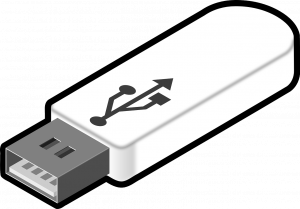Which is a risk associated with removable media?

Failure of detachable media—despite its low cost and convenience, removable media is fundamentally dangerous. This is because many gadgets have short lifespans and can fail unexpectedly. As a result, if a device dies and your business does not maintain backups, you may lose critical files and data.
The Bottom Line: the risk associated with removable media
If you save data on removable media, you must have a solid backup solution. Removable media can significantly boost a company’s productivity, but they must be used with caution and responsibility. To limit the danger connected with removable media, search for an alternative means to store data whenever possible.
What is the truth about the use of removable media?
The usage of removable media increases the risk of data loss if the media is lost or stolen. This can result in the compromising of enormous volumes of sensitive data, which can cause considerable damage to a company’s reputation as well as financial fines.
Consider the following steps to use these devices efficiently while protecting data security:
- Create a policy regarding the use of removable media.
- Install anti-virus software capable of scanning removable media devices.
- Make certain that any removable media devices are encrypted.
- These devices’ passwords should never be disclosed.
- Inform staff that they should never utilize unapproved removable media on a computer.
- Employees should keep personal and commercial data separate.
- Create a procedure for erasing any portable media devices that are no longer needed.
Whether you know what removable media is or not, you’ve probably used it at some point, either individually or professionally. All physical goods and gadgets that may carry and transfer electronic information and data by being plugged in or inserted into another device are considered removable media. Floppy disks were one of the first forms of portable media, and while they are no longer in use, the ‘Save’ icon in the Microsoft Office package lives on.
CDs and USB drives might fail at any time. If you use them as your primary data store, they can fail at any time. For example, if you drop a USB drive in water, the data on it may be unrecoverable. Hardware failure should be taken seriously because it can result in data loss. Some company data can be difficult or even impossible to reproduce if there are no reliable backups. If the data is lost, your company will suffer a significant financial loss.
Which is a risk associated with removable media?
Malware—This is another, risk associated with removable media when employees utilize removable media devices, they unwittingly distribute malware between devices. This is due to the ease with which malicious software can be installed on USB flash drives and other storage devices. Furthermore, it just takes one infected device to infiltrate your entire company’s network.
Conclusion–
Which is a risk associated with removable media?
If removable media devices are utilized for business and contain sensitive information, a loss might be disastrous. Many high-profile incidents have occurred of organizations losing or accidentally disclosing sensitive data, and in many cases, this data loss has come at a great cost, both in terms of brand harm and financial loss.
Another risk associated with removable media associated with the use of removable media is the transfer of malware from one device to another. In other situations, this may be unintentional; indeed, the majority of cyber security attacks are the product of human error, and malware can be transported from a personal computer to a work computer via a USB stick without the user being aware of the presence of a virus.
Read Also: Fort gordon cyber awareness







